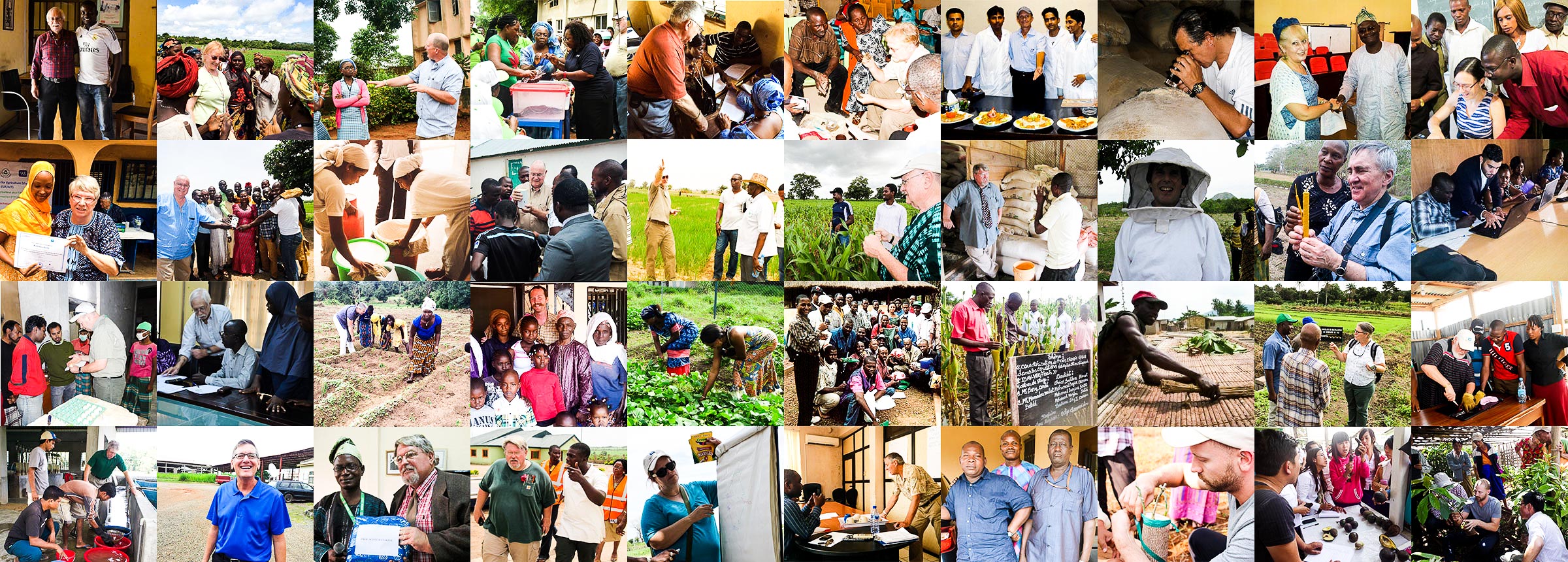
Volunteer Opportunities
Interested in volunteering with Winrock? Please register in our volunteer portal.
Already registered? Please submit updated resumes to our recruiters today.
If you don’t see an applicable assignment, you may still submit an online application to be considered for future assignments.
If you have any questions or concerns, contact our recruiting staff at volunteer@winrock.org, and check back for updates and new volunteer opportunities.
Current Openings
Overseas assignments last from two to six weeks. Click the assignment title to obtain additional details. Volunteers must meet basic qualifications for the assignment.
Back to Volunteer Opportunities
Climate-smart Agricultural Technologies
Location: Mamou, Guinea
Assignment Number: GUI318
Volunteers Requested: 1
Recruiter: Jennifer Robinson | Jennifer.Robinson@winrock.org |
Winrock International is seeking a Farmer-to-Farmer volunteer for a 15-day assignment (including travel) to Mamou, Guinea. The volunteer will conduct a training session for the female members and technical staff of the Coopérative des Femmes Agrobusiness (COFAB) on climate-smart agriculture, focusing on technologies and practices suited to the local context. The training will equip participants with knowledge and skills in climate-smart agriculture, an integrated production management system that enhances agroecosystem health, including biodiversity while addressing the impacts of climate change on agriculture, food security, and food systems.
The training will cover key adaptation and mitigation strategies in climate-smart agriculture (CSA), benefiting COFAB members and technical staff by deepening their understanding of climate change challenges and the potential for cooperative advancement. In Guinea, women form the majority of the horticultural workforce, and this session will provide them with valuable insights into the effects of climate change on agricultural production, particularly regarding rising water levels and crop damage.
Participants will explore a variety of CSA practices and technologies across seven entry points: soil management, crop management, water management, livestock management, forestry, fisheries and aquaculture, and energy management. CSA practices include methods like precision farming, tillage, and fertilization. Technologies may involve new materials or innovations integrated into established practices, such as drought-resistant crop varieties, hardier livestock breeds, or slow-release fertilizers.
Additionally, the training will incorporate practical guidance on securing financial resources to implement CSA practices. Participants will gain insight into navigating loan and financial assistance applications, empowering them to access the funding necessary for cooperative sustainability and growth. This financial component is essential for COFAB to achieve long-term resilience and success, enabling members to apply climate-smart agriculture techniques effectively within their operations.
The
volunteer should possess the following qualifications and experience:
·
Advanced degree in climate-smart agriculture, environmental science,
agronomy, or a related field with a focus on sustainable agriculture practices.
·
Extensive knowledge of climate-smart agriculture (CSA) practices and
technologies, particularly in areas such as soil management, crop management,
water management, and biodiversity.
·
At least 5 years of practical experience in designing and implementing
CSA strategies, including adaptation and mitigation techniques for agricultural
production systems.
·
Demonstrated experience in training and knowledge transfer in
agricultural cooperatives or similar settings, ideally focused on women-led or
community-based organizations.
·
Experience with agricultural finance or funding acquisition, including
working with microfinance institutions, grant-making bodies, or other funding
sources for cooperatives.
·
Previous work in West Africa or a similar developing country context,
with an understanding of local challenges in agriculture and food security.
·
French language proficiency is preferred; however, a translator will be
available if needed.
